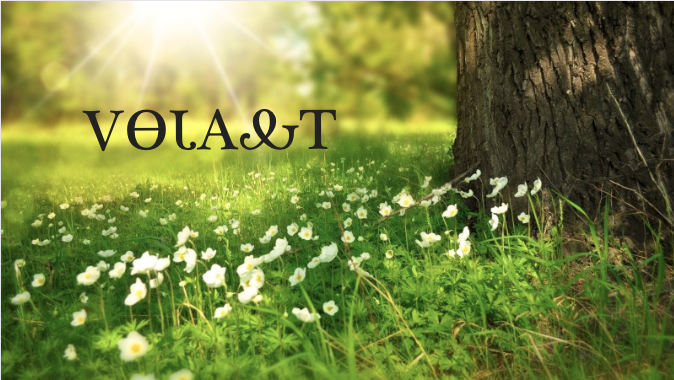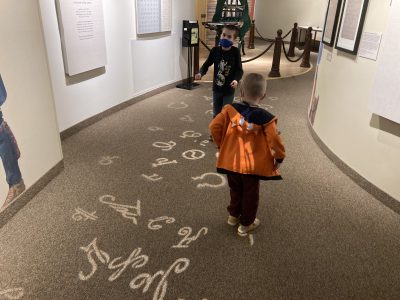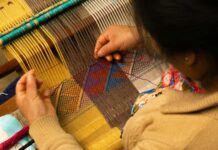 November is Native American Heritage Month.
November is Native American Heritage Month.
For as long as I can remember, my dad would reference our Cherokee heritage. From when his hair was completely black to when it was streaked with silver, he’d share the few Cherokee words he knew with us, stories of the removal, snippets of our ancestors’ history we didn’t learn at school. He’d clear his throat, resettle himself in his seat, and I couldn’t help but lean in, eager to hear the story.
In 2012, my dad died. A little over a year later, his mother joined him. Just like that, my access to our family’s Cherokee heritage dwindled to nearly nothing. I still have my tribal citizenship, but I am far away, and my ability to hear those stories from the same voices that told them to me in my childhood has ceased. It’s just one of the many ways that grief ebbs and flows — these realizations that the stories live on only in our own minds and memories.
Of course I’ve put my research skills to use, finding our ancestors’ names on the Dawes rolls and trying to piece together history’s perspective with the family stories I grew up hearing. But still, that grief pulled at me, and I was continually searching for ways to connect to my heritage in a time and place that predominantly ignores it.
I’ve long wanted to learn the language of my ancestors, especially since the language itself is in decline: only approximately 2,100 people speak it, and only a handful of fluent speakers are under the age of 40. A few months into the pandemic, I noticed a Facebook post from the Cherokee Nation. Since in-person Cherokee language classes weren’t an option, they were being offered online.
Something inside me sparked, and I immediately signed up.
For the last ten weeks, I’ve been attending Cherokee languages classes offered by my tribe, the Cherokee Nation of Oklahoma. First we learned the syllabary, a system of symbols and sounds that makes up the Cherokee language. Part of what makes the Cherokee language unique is that it was solely an oral language until Sequoyah finished creating the written language in 1821. We began learning words and phrases, but my teacher didn’t stop there. He has been teaching us the way the Cherokee language has evolved and changed such that we can understand how to form sentences and express our ideas in Cherokee.
I didn’t expect to learn about the character of my tribe, or how deeply it would influence me. For example, early on we were learning pleasantries. Hello (osiyo), how are you (tohitsu), how about you (nihina), thank you (wado). I asked what the Cherokee word for please would be, and my instructor replied, “There isn’t one. You just have to be bold.”
Now, to an anxious second-guesser champion over-thinker, I couldn’t help but blanche. Be bold? But I’m not bold! I’m terrible at bold!
But then it hit me: I am not good at being bold, but maybe I just need to practice. I also had to make myself acknowledge that my lack of boldness doesn’t make me any less Cherokee; it merely gives me something to strive for. Now, when I’m trying something new or putting myself out there in a way I never thought I would (like this, here, talking about my heritage publicly), I remind myself that my ancestors and our language calls me to be bold.
Learning Cherokee has opened my eyes and mind to parts of my heritage I didn’t know about, and allowed me to continue learning about my family’s heritage despite losing the people who spoke to me about it the most. It has also encouraged me to teach my kids the Cherokee words I’m learning, and tell them the stories I grew up hearing. Now we’re teaching our pets commands in Cherokee, and exploring our family history together. We visited the Sequoyah Birthplace Museum in Vonore, studying artifacts together and learning new facets of our history we didn’t know. Hearing my kids speak Cherokee brings joy to me, just as it must have brought joy to my dad to hear me say Cherokee words long ago.
 The other way learning Cherokee has changed my life is in learning to change my perspective. I’ve mourned and grieved my deceased family members, and I always will. I will always miss them, and nothing can nor should change that. But when discussing his own deceased parents, who only ever spoke to him in Cherokee, my instructor said ‘when they went home’ in place of ‘when they died.’ His phrasing, the traditional Cherokee phrasing of death, brought tears to my eyes. I realized something that had been bothering me, knowing I now know more Cherokee than my father did, was not something to mourn but to celebrate: the language connects us. I will always have the fond memory of my dad, the soft yellow glow of a lamp behind him, as he slowly pronounced Cherokee words for me to repeat.
The other way learning Cherokee has changed my life is in learning to change my perspective. I’ve mourned and grieved my deceased family members, and I always will. I will always miss them, and nothing can nor should change that. But when discussing his own deceased parents, who only ever spoke to him in Cherokee, my instructor said ‘when they went home’ in place of ‘when they died.’ His phrasing, the traditional Cherokee phrasing of death, brought tears to my eyes. I realized something that had been bothering me, knowing I now know more Cherokee than my father did, was not something to mourn but to celebrate: the language connects us. I will always have the fond memory of my dad, the soft yellow glow of a lamp behind him, as he slowly pronounced Cherokee words for me to repeat.
Learning my ancestors’ language has encouraged me to be bold, has given me the gift of passing the language down to my children, and has helped me with my grief. There is no Cherokee translation for goodbye. Instead, there’s a word, donadagohvi, which essentially means, ‘let us see each other again.’ Written in Cherokee, it looks like this: ᏙᎾᏓᎪᎲᎢ




















My dear, dear niece. I’m so proud of you. This brings a tear to my eye and joy to my heart. You are truly one of a kind. ❤